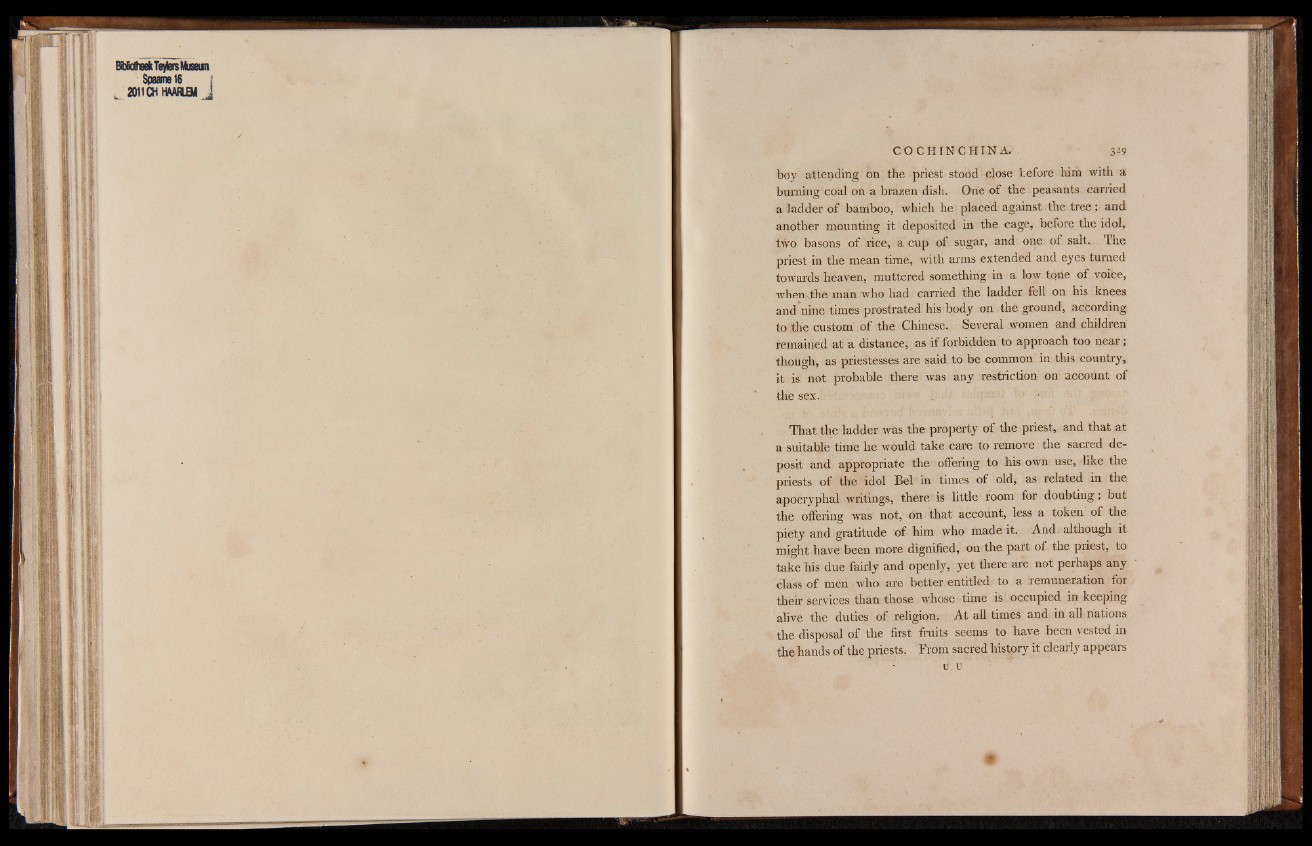
boy attending on the priest stood close before him with a
burning coal on a brazen dish. One of the peasants carried
a ladder of bamboo, which he placed against the tree; and
another mounting it deposited in the cage, before the idol,
two basons of rice, a cup of sugar, and one of salt. The
priest in the mean time, with arms extended and eyes turned
towards heaven, muttered something in a low tone of voice,
when\the man who had carried the ladder fell on his knees
and'nine times prostrated his body on the ground, according
to the custom of the Chinese. Several women and children
remained at a distance, as if forbidden to approach too near;
though, as priestesses are said to be common in this country,
it is not probable there was any restriction on account of
the sex. pw ■ •
That the ladder was the property of the priest, and that at
a suitable time he would take care to remove the sacred deposit
and appropriate the - offering to his own use, like the
priests of the idol Bel in times of old, as related in the
apocryphal writings, there is little room for doubting; but
the offering was not, on that account, less a token of the
piety and gratitude of him who made it. And. although it
might have been more dignified, on the part of the priest, to
take his due fairly and openly, yet there are not perhaps any
class of men who are better entitled to a remuneration for
their services than those whose time is occupied in keeping
alive the duties of religion, At all times and in all nations
the disposal of the first fruits seems to have been vested in
the hands of the priests. From sacred history it clearly appears
v. u
*